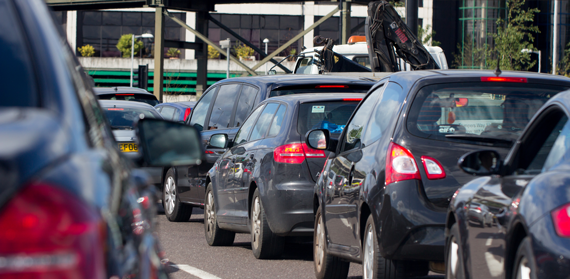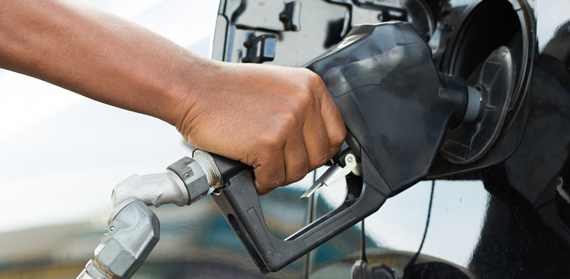Image: Shutterstock
Professor Lyndon Simkin, Centre for Business in Society
A few months ago, German legislators announced outline plans to remove all petrol and diesel engines from the country’s roads by 2030. This is the country responsible for the combustion engine. Germany’s federal council, the Bundesrat, has passed a resolution calling for a ban on combustion engine cars by 2030. If the ban is implemented, German citizens would only be permitted to purchase electric or hydrogen-fuelled cars.
Now the mayors of Paris, Mexico City, Madrid and Athens say they are implementing a ban on diesel vehicles by 2025 to improve air quality. The leaders of the four major global cities say they will stop the use of all diesel-powered cars and trucks by the middle of the next decade, giving incentives for alternative vehicle use and promote walking and cycling.
But is this really the death knell for the diesel engine?
Noise and air pollution are accepted consequences of using diesel vehicles. Many of us with a diesel-engined vehicle understand the downsides. However, the practical needs of HGV and van fleets, previous tax breaks designed to encourage diesel vehicle purchases, and the long history of producing vehicles wrapped around a diesel power unit, have created a pattern of usage behaviour which will prove hard to break.
One of the barriers facing these well-meaning legislators will be financial. Power options offering cleaner air and less noise are still much more expensive. Just as with the early stage home computers or large flat screen TVs, or with manufacturing robots and computer servers, new technology invariably comes at a price. It is usually only once a market has taken off that unit prices fall, enabled by rising customer purchases and driven by more competing suppliers piling in. So in practice, these legislators will need to subsidise alternative technologies in HGVs, company fleets and private car ownership. In the post-financialisation era of prudency and public spending cut-backs, how viable is that going to be? Or they could adopt a big stick approach and through taxation bands or simply via legislation demand we switch from diesel (and then petrol). The problem then is that without subsidies, such pricing implications would be passed through the supply chain to consumers, with rising inflation and more stresses on household finances, for which no Government wishes to be blamed in the current political climate.
Another barrier is that the technically viable alternatives to diesel engines are in practice still far from viable functionally. And despite claims in some quarters that an alternative includes more walking and peddling, those options will not bring to your offices all that is required in your day to day operations or stock the shelves in your favourite retailers or help distribute your goods and services. In most cities, the majority of diesel use and road miles centres on deliveries and logistics. So we are left requiring engines. But cleaner ones. Hydrogen is a long way from proving a realistic option: there simply is not the infrastructure worth speaking of and little apparent appetite for creating the required network. EVs are improving all the time, with some manufacturers now claiming cars with a range of 200 miles before (time consuming) charging is required. There is no doubt that Nissan, Toyota, Tesla and now JLR are pushing forward EVs with game-changing pace, but will the required charging infrastructure keep pace and when will viable delivery fleets be operational? It seems unlikely that these step-changes will be in time for the legislators in Germany and the four cities mentioned above.
In a recent trial of EVs, a fleet operator of vans explained her difficulties in juggling her schedules and jobs so that lengthy re-charging times could be accommodated or routings could include one of the few charging points in the company’s area of operation. This company director was a passionate convert to EVs and believed in their running cost savings and environmental benefits, but still struggled to manage her jobs with only EVs. A manufacturer of fast moving consumer goods explained to me how logistical savings made the difference between profit and loss to his low-margin food manufacturing business. This company’s HGVs had to be managed so as to maximise a driver’s time and distance covered, to also achieve the highest number of deliveries possible per despatch from the depot. With current range restrictions and charging times, a cost-effective and profitable option lay only with diesel-powered HGVs. This was compounded by the instance by one of the UK’s biggest supermarket chains that minimising road miles and maximising drop-offs per run had to take precedence. For this food manufacturer, only a fully laden HGV with a diesel tank could currently achieve this. Yes, the technology is changing all of the time and no doubt what Tesla has achieved in cars others will do for HGVs and delivery vans, but to date they have not done so.
The biggest barrier to the legislators’ plans may well be something very different… behaviours. Some will walk or cycle, but most will not. Some companies will stretch their planning and flex their operations to accommodate EV and hybrid fleets and deliveries, but most will not bear the planning, operational and cost burdens of doing so. Some local authorities and regional governments will provide mass transit systems able to reduce road use, but most do not have any budget or hunger to do so. Certainly, there are companies, consumers and policy makers with a conscience who strive to ‘do the right thing’, but my experience of researching EVs since their emergence in the 1990s is that there are too few such individuals and firms to make the difference. The finances currently are unattractive in terms of purchase price for EVs and other alternatives (although better when calculating running costs) and few Governments have surpluses enabling the provision of hefty state subsidies. While the functionality is not yet available to allow easy substitution of vehicles in a company’s operating fleet. Yet without mass adoption and falling prices, we will struggle to comply with the regulators or to improve our environments.
Mass adoption in other markets has undoubtedly occurred once purchasing really started to take off and more consumers entered the market. In most instances, such a take-off has been triggered by the entry of a low-price game-changing competitor (remember the impact of Amstrad computers?), or a new level of functionality surpassing existing technologies (such as microwave cooking), or a life-style changing innovative technology (as in the smartphone). In the case of diesel vehicles, the innovative alternative technology has existed for twenty years, but is priced beyond reason in the minds of most consumers. So maybe our destiny lies in the hands of those brands and marketers who can commercialise new technologies as ‘must-have’ trend-setting desirable consumer gadgets and brands deemed essential to be seen owning? The emergence of highly desirable EV and hybrid ‘gadgets’ from Tesla, BMW and JLR – rather than functional and sensible offerings such as the Prius or Leaf – might well be about to prove a game-changer, bringing to EVs consumers who buy for looks, trends and the badge of ownership, rather than a desire to save the planet. If this happens, sales are likely to accelerate dramatically, bringing a fall in retail prices as production volumes escalate.
No more diesel vehicles? Will we really bear the pain to have the gain? Viable options to diesel are emerging, but just not in line with the timelines suggested by the legislators. Unless the power of branding and the persuasion of consumers can emulate other markets. The sad truth is that not enough of us have a conscience or care enough to tolerate being inconvenienced with a decline in product functionality or to spend more. To be mass market, fully acceptable and to really create change, we just might require ‘must have’ brands and trendy gadgets appearing in this space. There are signs that this is now the case.





Comments are disabled